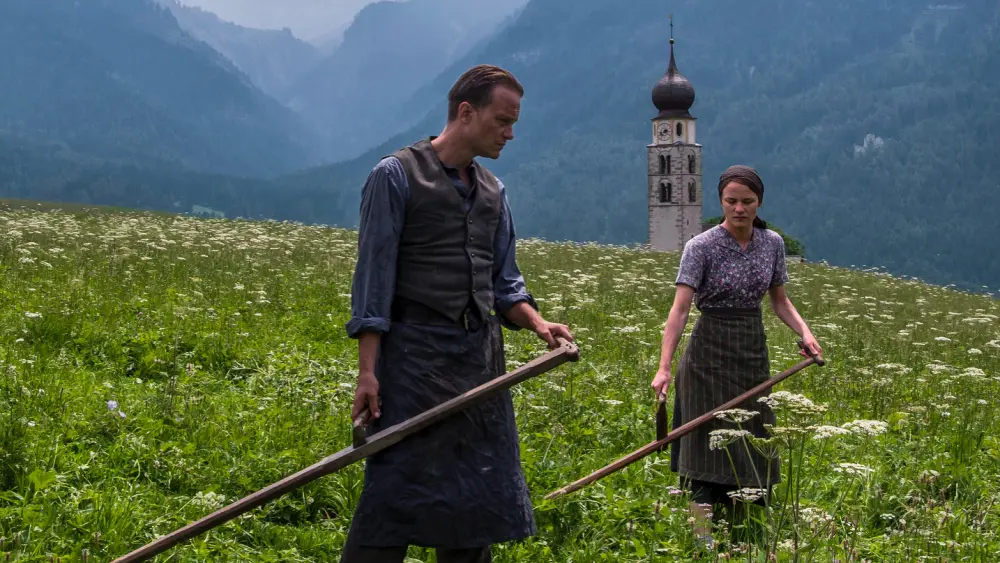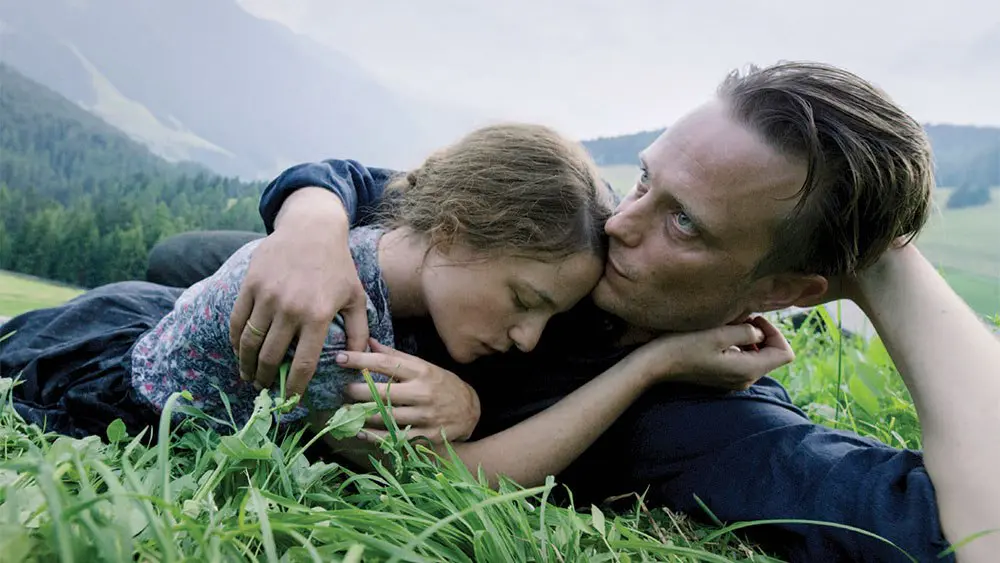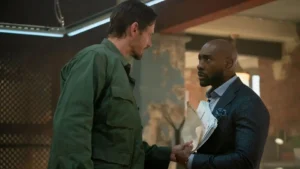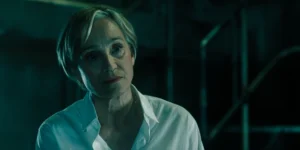Summary
Terrence Malick’s new feature is as gorgeous as ever, but often emotionally static.
After spending the entirety of the 2010s thus far perfecting what I suppose can now be called his mid-to-late career style on cinematic anti-narrative soulful musings centered on modernity, Terrence Malick has returned with his most traditionally narrative-driven picture since perhaps The New World. A Hidden Life is about the real-life figure of Franz Jägerstätter (August Diehl), who lives a blissful life as a farmer in Austria with his wife Franziska (Valerie Pachner) and family, surrounded by lush greenery and the beauty of the hills and mountaintops. Their personal heaven comes crashing down in the blink of an eye as World War II begins in earnest and Franz is called to fight for the Nazis and swear an oath of loyalty to Hitler, an act he struggles to reconcile with his religion and ultimately refuses to do in an act of conscientious objection.
Running an exorbitant (nearly) three hours, Malick’s depiction of this personal crisis of faith and morality struggles to consistently maintain the same visceral sense of spiritual pondering and catharsis that his best works are able to conjure for the entirety of the runtime. Franz’s internal journey is ostensibly and ideologically compelling but cinematically only intermittently so, as this film is shot in Malick’s same dreamy style he’s adopted since The Tree of Life that I’m not certain works for this story.
In his now typical fashion, Malick’s camera seems to float through much of A Hidden Life; quietly sneaking up on characters in intimate situations, drifting and gliding through shots of nature and humanity intertwined. Actual on-camera dialogue is minimal and is often overtaken by voice-over narratives that reveal characters’ decidedly abstract musings on the complex intricacies of the world and their place in it, accompanied by sweeping orchestral and string arrangements in Malick’s reliably grandiose, ethereal stylings. It’s all often quite beautiful and captures images and particular feelings that it seems only Malick is able to encapsulate in quite this specific way. His keen cinematic eye is inarguable and his focus on the smallest moments of the beauty of life, love, and humanity, even in the face of a fascist regime, creates transcendent moments that no other director could generate quite as he does.

Despite the frequent grandeur though, the way his style interacts with his characters hinders a lot of this that exists outside of an aesthetic level. There’s an emotional disconnect here that hasn’t been an issue with his work for me for his last several projects (it should be noted that I’m a Knight of Cups and Song to Song apologist). His other recent works have been able to use this style to explore the complicated spaces of modern life and its related ideas like vapidness and shallowness in conjunction with his usual preoccupation with religion, nature, forgiveness, and the like. These films were visions of an abstract world headed by flawed individuals looking for that grace and beauty. This methodology when approaching the morally resonant plight of a WWII objector made me feel like a detached spectator rather than being allowed into that internal dilemma. Such a straightforward, ultimately slight narrative told through this particular manner and extended out to this length more often than not makes this a long, emotionally stagnant sit.
But there are moments throughout of stirring poignancy that, in individual moments, best most other films from the past year. The final moments are especially poetic, and you’ll find sections of this that are as lyrical as anything Malick has ever done before. The overlong, repetitive narrative kept me at arm’s length far more than I would have liked, but I’d be lying if I didn’t acknowledge that I find it a treat just being able to watch the idiosyncrasies of one of my favorite auteurs grace the screen for a few hours. A Hidden Life may not be one of my favorite efforts from Malick, but its scattered entrancing qualities and sincere artistic vision make it one I can’t write off either.




